Slight turbulence ahead.
Things were a little bumpy going into the season this year, but we have become accustomed to that over the years.
And the Burundis, taste, well… like stunning Burundis: amazing complex coffees and so characteristic. Definitely worth a few bumps and jumps.
Low yields this year
As every year our focus is on our long-term relationship with Salum Ramadhan and his four washing stations. The yield on the trees was low this year, not just for Salum and his washing stations in Kayanza, but throughout the country. It is at times like these that our long term commitments are very beneficial, as Salum will reserve the good cherries for us in order to ensure the volumes we have pre-booked.
Of course we’d much rather just have him do well and get the volume he needs to make ends meet, but the coffee plants are in good hands with Salum and his outgrowers, so I have no doubt yield will be back up to normal in the following seasons.
Increasing conflict
In addition to the low yield, Burundi faces another challenge this year. Increasing conflicts have led to many western organisations pulling out of Burundi, and the government is trying to get more grip on their economy.
Considering agriculture is ~40% of their GDP, of which coffee and tea are the main exports accounting for more than half of their foreign exchange earnings, coffee is of course a big target. The ARFIC (the governmental organisation that regulates the coffee industry within the country) is changing the laws and acquiring more power over the companies that operate within the coffee industry.
All of this makes it harder and riskier for us to get visas to enter the country. There’s a high chance of getting stopped at the border for an unpleasantly long interview, or possibly not getting into to the country at all. Most pressing for us now is to keep a smooth communication with the producers to get the exporting documents to get the containers moving.
The impact of pre-commitments
One of the consequences is that we need to pre-finance large sums for the coffees, which brings a lot of increased risk for us. Of course the upside is that the producer has a higher liquidity and can invest in his operation earlier, and start preparing for the next harvest. Let’s focus on that instead.
What to expect?
We’re aiming for September shipments with arrivals coming in October to early-November.
This time around we putting more focus on the naturals, as they have been incredibly stable and increasing in complexity the more they rest. We expect a good ~50/50 spread between washed and natural coffees across the Buzi, Mbirizi, Sehe and Shembati washing stations in both the containers landing in Belgium, plus one very small honey lot.
Washed
The brightness is back! While some of last year’s lots were slightly less bright, this year sees the return of the classic Burundi washed profile. In just a few weeks between cupping the offer samples (straight off the drying tables) and the PSS, we’ve seen these lots opening up and showing layers and layers packed with fruits, florals, and the typical Burundi brightness.
Naturals
For the naturals it’s a little different. I’d personally divide them into 106 two categories to make it easy. You have the balanced/tealike/floral ones with great lingering acidity, and the super chunky/rum-raisins/chocolaty/wild fruit/funky/deliciously-punch-in-your-face ones. Both styles feature the layers of complexity and brightness you are used to from our Burundis.
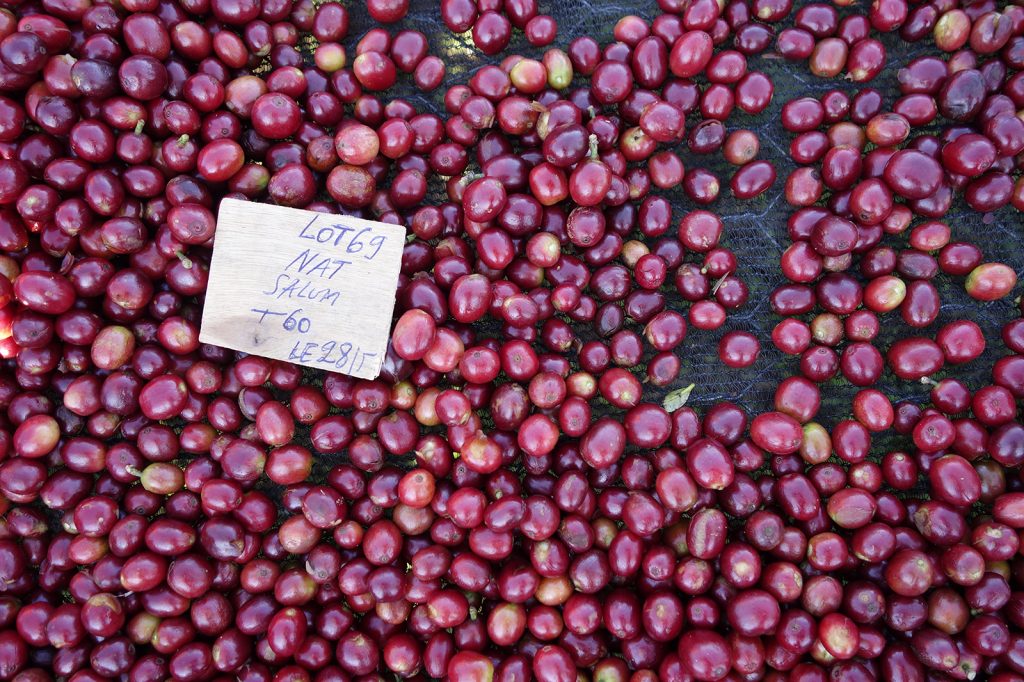
Naturals on the drying table 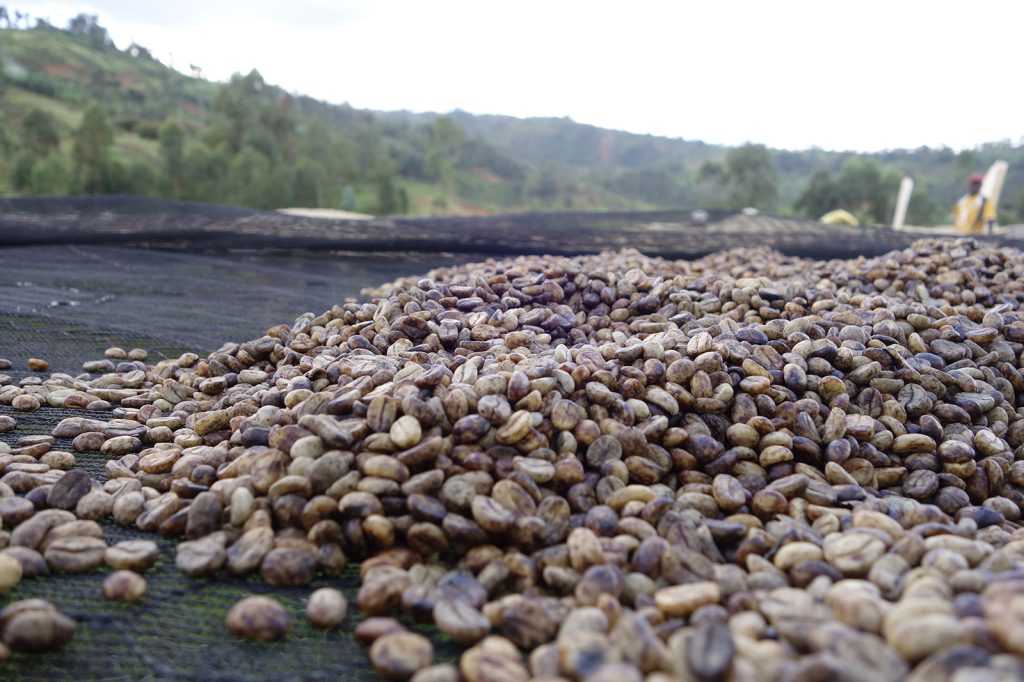
Honey
In short – we have crazy interesting coffees that you can’t miss!
More info closer to the landing dates.
Have a great week and don’t forget to smile.
– Jamie
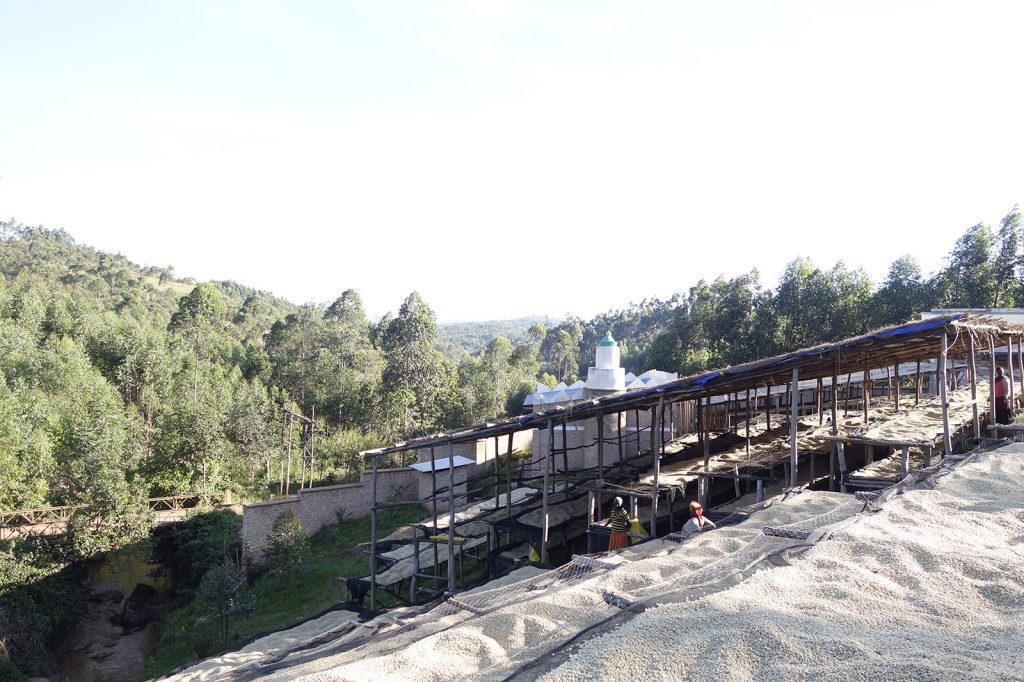
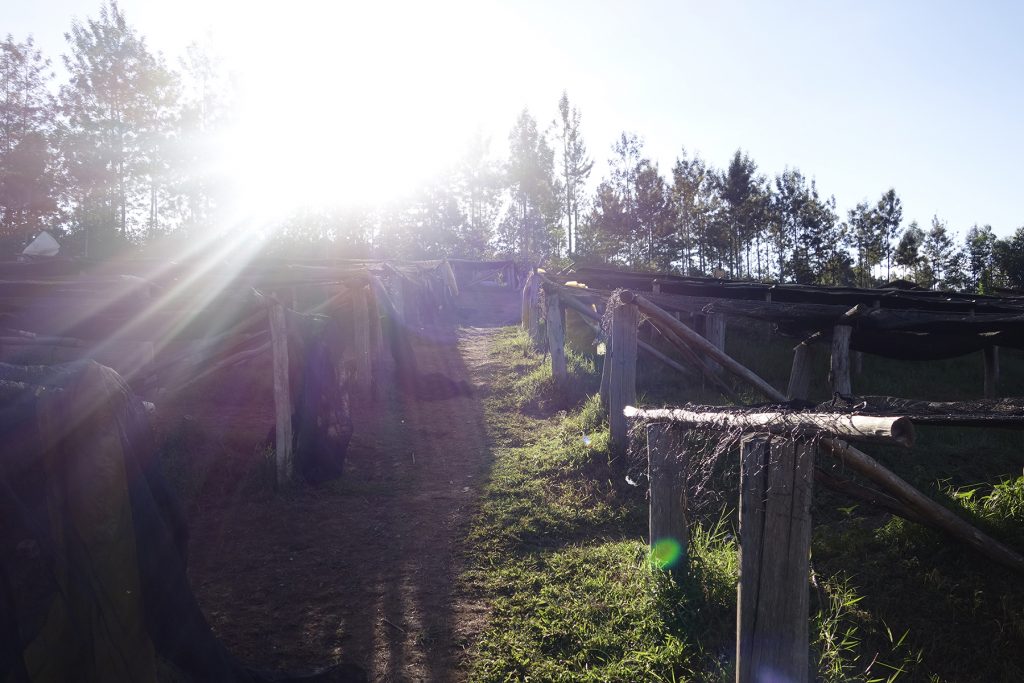
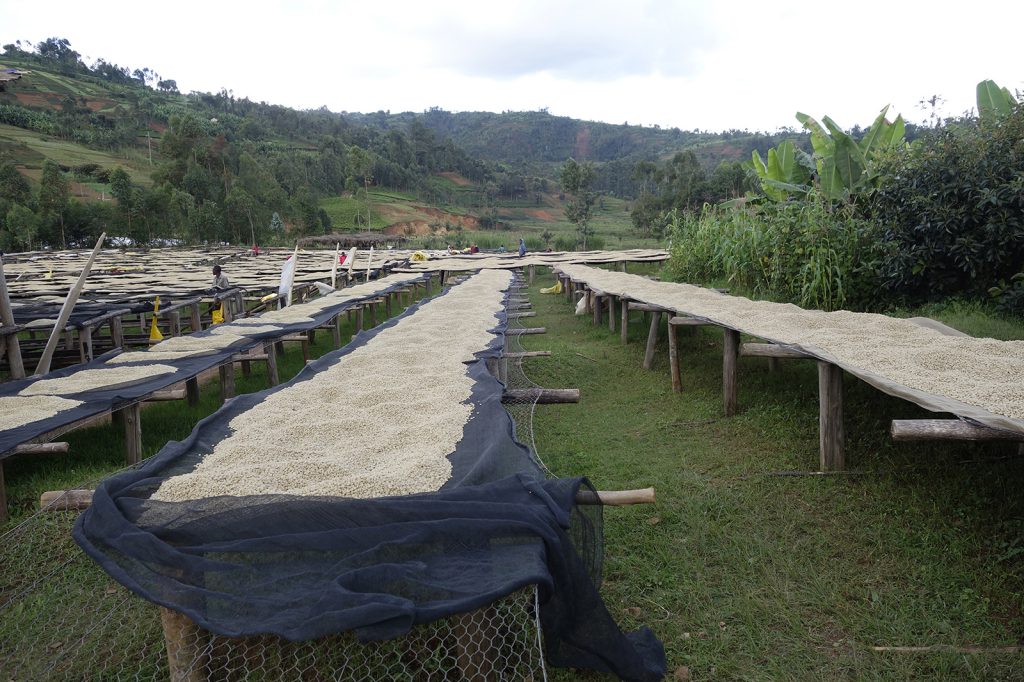
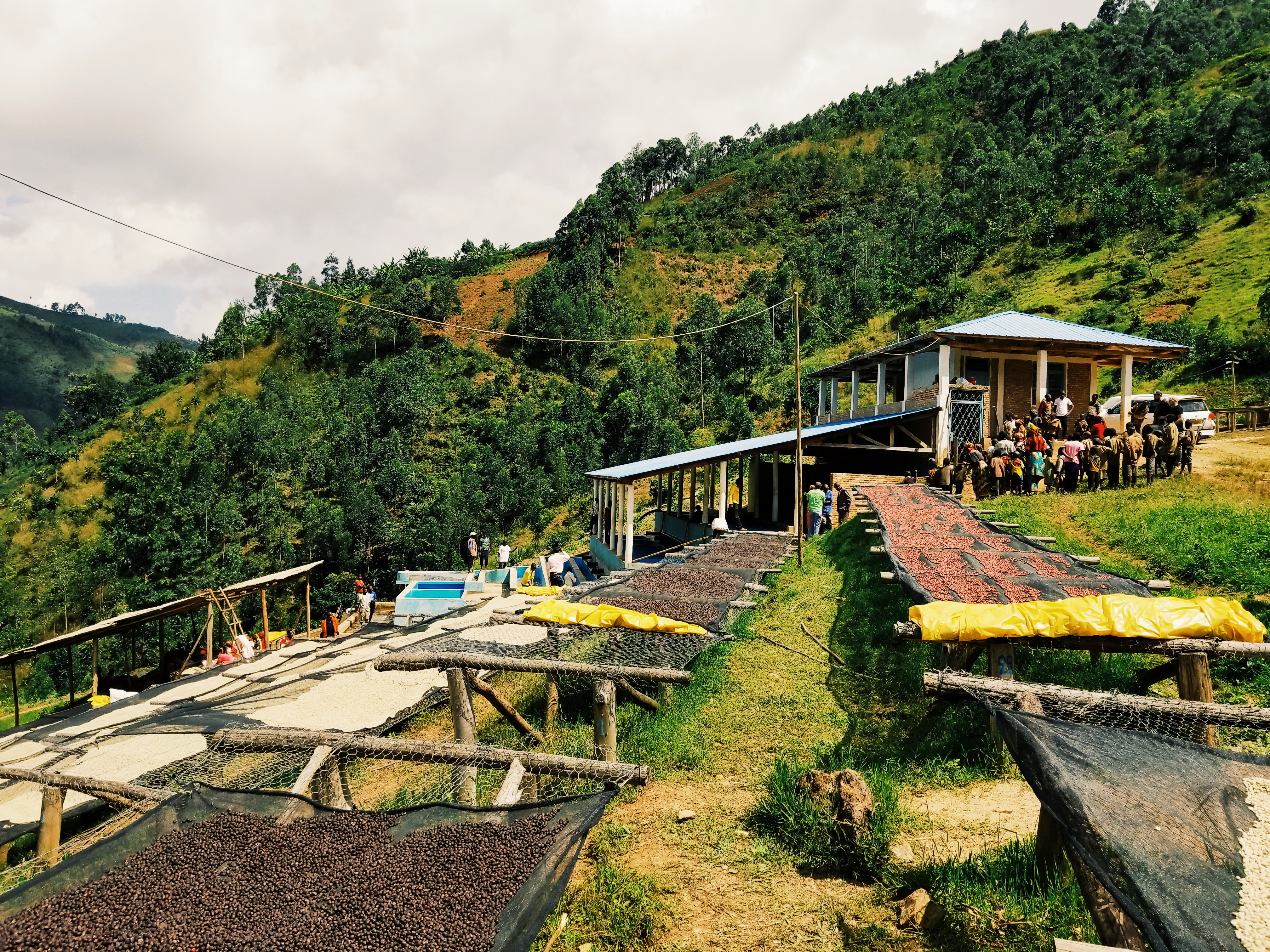
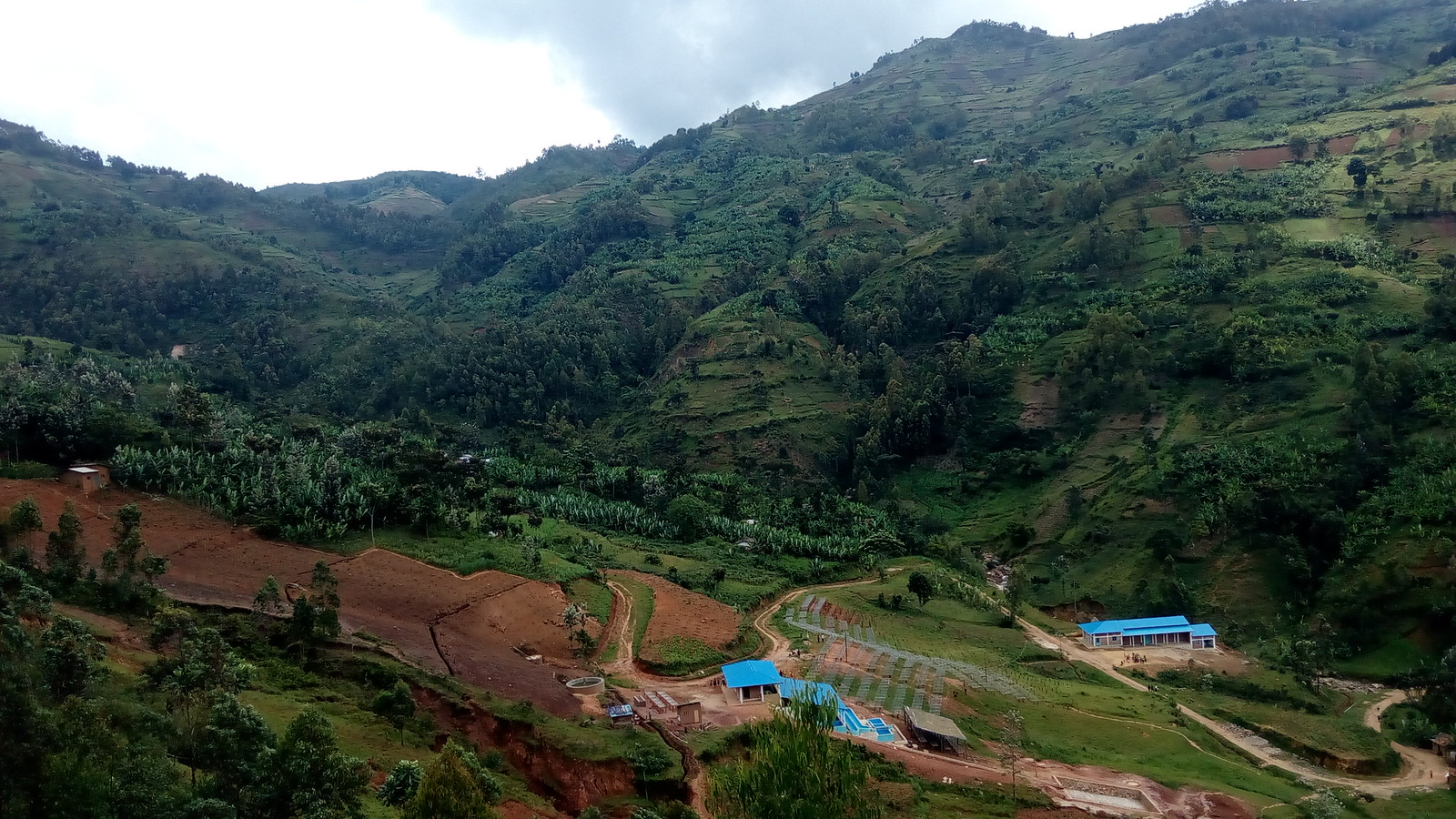
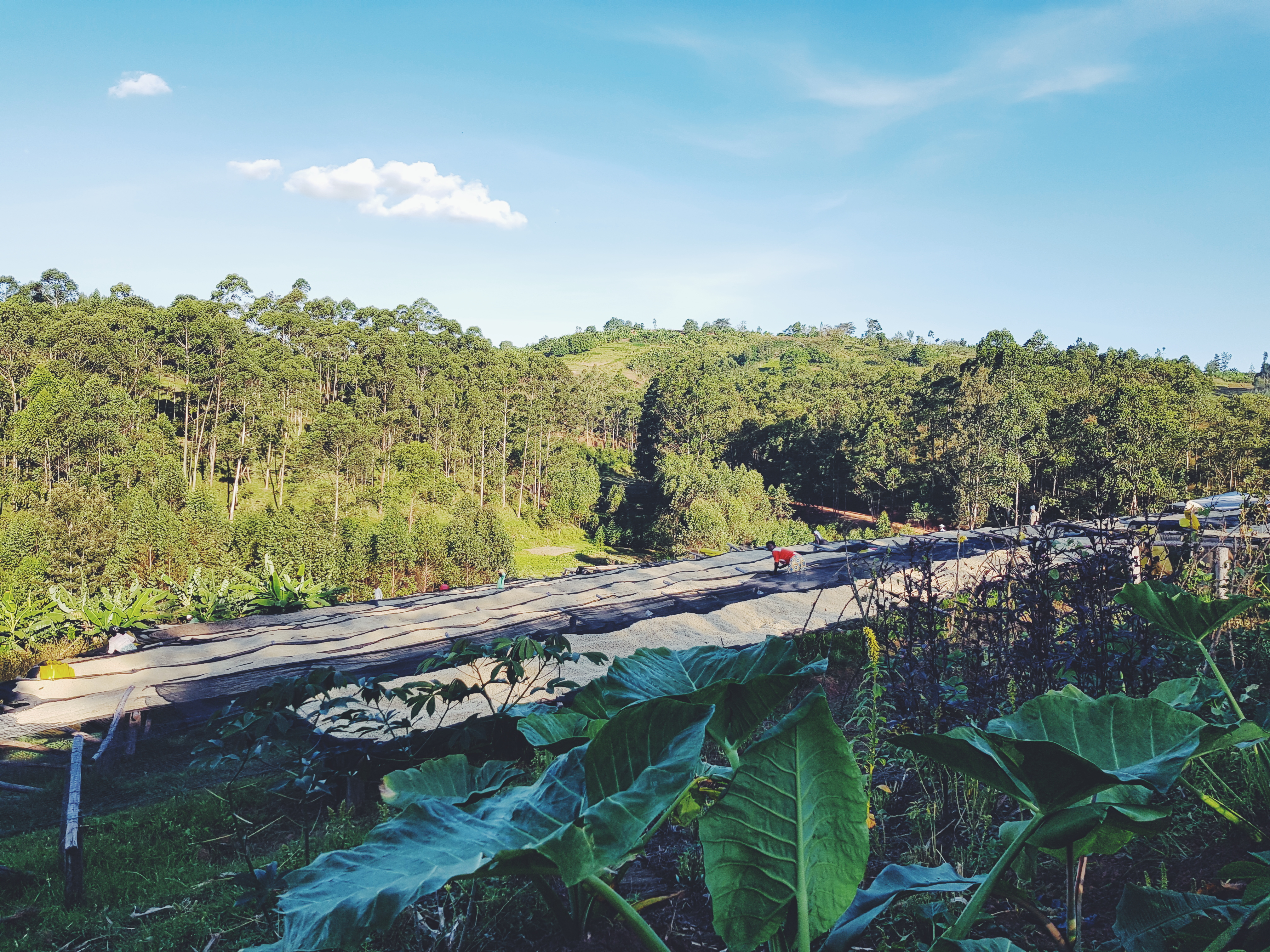
0 Comments